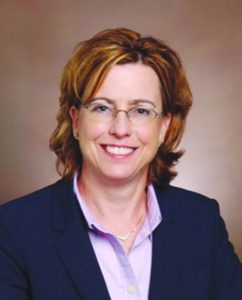Earth In Crisis: Cleaning Up The Garbage
Measure 306 Would Require Businesses, Multi-Unit Apartments, Construction Companies To Recycle And Compost
By Tracey MacDermott
For the GPHN

It is estimated that an average American throws out a whopping 1,800 pounds of trash every year. A third of that waste could be recycled and over half could be reused.
In June, Denver’s City Council passed a trash fee, called Pay As You Throw. The measure requires single family homes and buildings with seven units or fewer to pay for trash, while receiving recycling and compost services for free. To meet Denver’s goal of diverting 70 percent of waste from landfills by 2032 much more will still need to be done.
Twenty percent of our greenhouse gas emissions comes from solid waste. It will be impossible to meet the city’s goals if single family homes and low unit multiplexes are the only ones responsible for paying. This is where Measure 306 on your November ballot comes in.
Currently, commercial businesses aren’t required to recycle or compost in Denver. Waste No More Denver, the group sponsoring Measure 306, is proposing raising the bar by requiring that apartment buildings, condos, restaurants, hospitals, hotels, sporting arenas and permitted events provide compost and recycling services.
Colorado Public Interest Research Group (CoPIRG) and Eco-Cycle estimate that Denver businesses generate about 55 percent of the city’s municipal waste. As noted on the campaign’s website (wastenomoredenver.org), commercial properties and construction sites generate the majority of Denver’s waste (82 percent) and most of it (63 percent) ends up in a landfill. Many of these materials could be used in new manufacturing or as building materials, however recycling them is not currently required.
Recycling old buildings (called “deconstruction”) saves valuable materials and doesn’t emit pollutants to the surrounding area. Salvaging prevents many materials from ending up in the trash. To highlight a couple examples of this concept at work: Last year, the New York Times reported on the green building movement and highlighted an ordinance in Portland, Ore. which requires salvageable parts be saved when older homes are taken down. In 2020, the City of St. Louis began to take apart buildings in order to salvage brick and lumber.
We need to be motivated to reuse and repurpose existing buildings for use before ripping them down. Many could be converted to housing and other community needs. We must look to decrease our waste by utilizing existing buildings and helping solve other issues plaguing society. The 3 R’s (Reuse, Reduce and Recycle) should add a C at the beginning for Conservation.
Waste No More Denver highlights the many benefits to this initiative: recycling and composting can slow climate change, leveling the playing field for businesses that are already recycling, and decreasing the destruction of wilderness currently being harvesting for one-time use products.
When you recycle and pay attention to doing it correctly, you help create nine times as many jobs as landfilling does, according to the Environmental Protection Agency. During the COVID-19 crisis we all experienced delays in the supply chain. If we had been practicing conservation and reuse through the pandemic, we may not have experienced that phenomenon quite as hard. Indeed, the pandemic should make us take stock of our overconsumption and wasteful practices, and put it to a stop now.
In 2019, the Natural Resources Defense Council (NRDC) noted that the US accounts for 4 percent of the world’s population, yet generates 12 percent of the municipal solid waste. This adds up to 239 million tons annually. The U.S. falls well behind other industrialized nations.
Our nation (and the rest of the globe) needs to work quickly towards a circular economy where waste is designed out and looped right back into the production cycle. The circular economy presents a huge opportunity for the United States to lead and get back to its inventive roots.
Greater Park Hill Community, Inc. has been reducing what we send to the landfill for years. The registered neighborhood organization implemented compost and recycling in the building at 2823 Fairfax St. quite some time ago.
If you have been to our Home Tour and Street Fair, you may have noticed the recycle/compost/trash kits with gloved volunteers sorting through the discards when items get tossed into to the wrong bin. It’s a messy job but satisfying to know we are reducing are impact. We do the same for our annual Garden Walk every June. You can look for the same zero waste approach at this year’s Fall Festival on Oct. 9 in Axum Park.
Look for your ballot mid-October and consider a yes vote on Measure 306. Help get Denver up to par with other forward-thinking cities. We know how dire this climate emergency is; let’s all do our part.
Tracey MacDermott is an at-large member of the board of Greater Park Hill Community, Inc., and immediate past chair. She was trained as a Climate Reality Leader in 2017, and is currently the Statewide Co-Chair of the Climate Reality Project for the 100% Committed Campaign. The views expressed in this column are her own. Contact MacDermott at traceymacdermott@gmail.com.
